#monarchies
Photo

Monarchies in Europe, 1914 vs 2023.
928 notes
·
View notes
Text
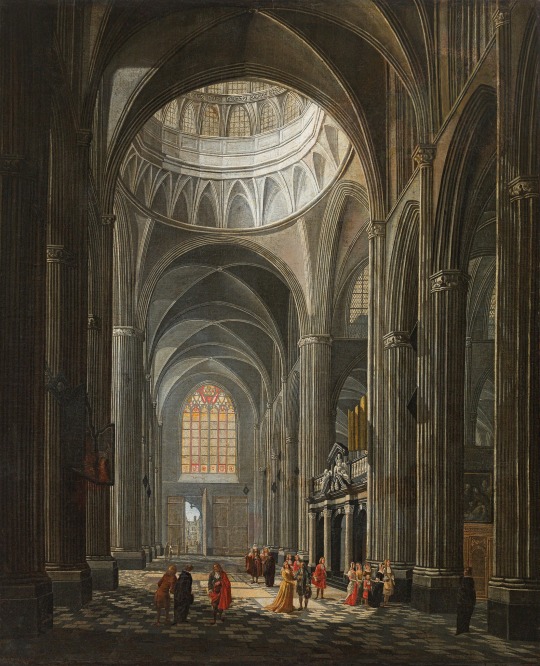
Church interior with sauntering Court Society by Ludwig Kohl
#ludwig kohl#art#church#interior#architecture#churches#court#royal#nobility#cathedral#cathedrals#religion#religious#christian#christianity#europe#stained glass#european#royal court#monarchy#monarchies#courts#arches
133 notes
·
View notes
Text
things that don't let me sleep: the functioning of monarchies and the succession to the throne in EAH.
176 notes
·
View notes
Note
What is it with arab kings and claiming they’re descendants of the prophet lol king abdullah does that too its literally mentioned in the national anthem like his ass aint half white
Honestly they probably think it makes them more legitimate which is completely stupid because even if it was true the only rule regarding descendants of the prophet is that they cannot receive the Zakat. Nothing ever said they are automatically better Muslims or better rulers. It’s also a way to pretend they have been chosen by Allah which imo is a huge blasphemy but that’s an other topic.
Either way they are stupid and need to all be kicked out.
61 notes
·
View notes
Photo

#class war#class warfare#classism#the royals#the royal family#monarchies#the queen#queen elizabeth#jubilee#the jubilee#monarchy
1K notes
·
View notes
Text
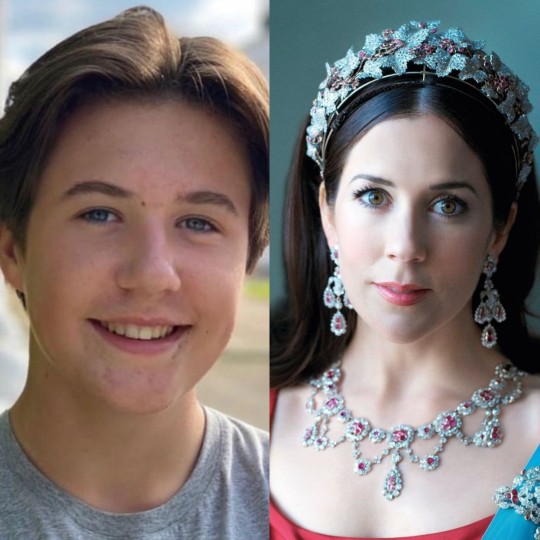
Blood is thicker than water
~☆~royal lookalikes~☆~
Prince Christian of Denmark and his mother, Crown Princess Mary. -@abigaaal 😇💛
@krasivaa's royal series
#requested#abigaaal#@abigaaal#my edit#my collage#drf#danish royal family#monarchy#monarchies#lookalikes#royal lookalikes#royal#royals#prince christian#crown princess mary#mother and son#krasivaa's royal series#krasivaa's royal series-lookalikes#royal family
28 notes
·
View notes
Text

If we have to deal with monarchies in the world we at least deserve One Queen regnant,
#too masculine#too many men#at least we have three female heirs#monarchies#denmark#queen margrethe#royal news#don’t be mistaken I am not a monarchist#castiel#supernatural#new year’s speech#danish royal family#end of 2023
10 notes
·
View notes
Note
Was Westeros an absolute monarchy?
*EDITED POST* (11/14/23)
No, it was a feudalist society with a monarch more powerful than any real feudal monarch because they had dragons and were able to create a new concept of divine-ish rule through the Doctrine of Exceptionalism. The Doctrine didn't say that the Targs had power b/c the Seven granted it to them (like how absolute monarchs claimed) but it did say that no one in Westeros could criticize or rebel against the dynasty for its custom of sibling marriage. The reason the Doctrine gave was that the Targs do not come from a Seven or Andal background. It said that since they have dragons and used them to conquer Westeros (there are such things as the "right to rule by conquest" in real history, you can check out William the Conqueror), they are the rightful rulers.
Feudalist societies are structured by groups of units holding land in exchange for service or labor AND those landholders having rights to the land through inheritance & kinship [in one of the reblogs below]. There is a set of reciprocal legal & military obligations among the warrior aristocracy: lords have fiefs that their vassals live on, and those vassals owe allegiance, services, and/or payments to the lord. The monarch in such a system was the "supreme" holder of the lands and territories and everyone owed their allegiance to them, but monarchs also were sometimes dependent on non-royal nobles to provide armies and in the earliest periods of the Middle Ages, the "great" lords grew & retained their power/resources separate from the monarch, governing their fiefs as independent states. Even minor lords could govern their fiefs as if they were separate states as long as they could self-supply.
Monarchs were usually kept in check by other lords' powers bc these lords had their own fiefs and vassals. The more ability you, the monarch, have to raise armies (or other tools) to intimidate other lords, the more you could impose and support your own monarchist agendas/laws. (This is all how we learned what a "feudalist" state is, through how historians broke it down. The very description of feudalism actually only came up after it ended.)
In absolute monarchies, the monarch's power & actions aren't questioned or limited by any written law, legislature, court, economic sanction, religion, custom, etc. In other words, there are no official or organized checks on a monarch's power. And they accomplish or maintain this by:
insisting on the concept that their power is God-given and "partner" with the "papacy" (or whatever supreme religious institution is there) to enforce that concept through violence or reconstruction
OR doing away with the prior supreme religious institution: taking the "Church's" lands or rights to lands or breaking the country off from the "Church" so they create a new Church/religion and take over as its head (make that a royal hereditary office)
raising totally independent, royal armies
seizing nobles' lands and absorbing them for such armies, palaces, reconstructions of critical infrastructure for the crown's own use or ownership
setting up large royal courts where all/most nobles and their families (or most) were required to attend to the monarch and the royal family -- may be for a specific period of time and this isn't like a visit where the monarch hosts, this is like being called in and told to stay -> but an absolute monarch could make as if these families having their own quarters within the grand palace is a great honor or these quarters may come with pecuniary and other social benefits/prestige
OR pushing most/all nobles (the lords and a huge chunk of their clan/families) to live in certain cities/areas together close to the palace
And absolute monarchies developed as "solutions" to a monarch's checked powers back in the feudalist days.
This is what I say in this reblog:
Westeros does not have an absolute monarchy and none of the Targs were absolute monarchs like the Louis and Sun Kings of France in the 18th century, as a reblogger pointed out. [...] At the same time, The lords' rights to their family's properties are partially determined by the king, in the existence of legitimization, which can only happen if is the monarch doing it. Lords can only acknowledge bastards, not legitimize them, in Westeros. The king/monarch can legally strip lands, titles, privileges, etc from anyone they choose. Westeros is not a constitutional monarchy, either. And the word of the feudal or absolute monarch still is FINAL--both of these types have the monarch give the final authority.
Basically in ASoIaF, the Targs can act/are closer to absolute monarchs but live in a "feudalist" state. Even after they lost their dragons, they were never seen as tyrants or inherently tyrannical because:
the Targs did not oppress, kill, or menace large swaths of nobles or smallfolk (the nobles' jurisdiction) on the whole nor consistently
as per feudal ideology, they were the kings and supreme rulers whom nobles swore oaths, and like we saw in Ned, many lords and their families do believe or pragmatically rely on the social hierarchy facilitated through bonds of loyalty to the king and his family...it supports their own right to rule
the nobles, evident from the very beginning, wanted their own ins into royalty/power through the Targs--dragons or not
NOR do anything the nobles themselves would not do if they had dragons
(for the commoners)there hasn't been anything like the Black Plague where nearly a third of people died and the value of their labor increased enough for negotiation held AND the Doctrine of Exceptionalism and its Faith-support reinforced the Targs' right to rule
Robert even didn't dislike the Targs until one made moves on "his" girl.
However, there has never been a constitutional monarchy in Westeros or in any pre-Westerosi kingdom in the same continent.
Constitutional monarchies are those where the monarch's decisions are checked by a written constitution and have a legislative (law-making/approving) body of people who judge and prescribe some of the monarch's decisions or actions. Their actions are bound by an established legal system. These monarchs usually cannot set public policy or choose political leaders for specific positions...at least legally.
#westerosi society#asoiaf asks to me#doctrine of exceptionalism#absolute monarchy vs feudalism#definitions#feudalism#absolute monarchy#constitutional monarchy#monarchies#the targaryens
18 notes
·
View notes
Text
Flag of Electorate of Harrold ( Koa Lore )
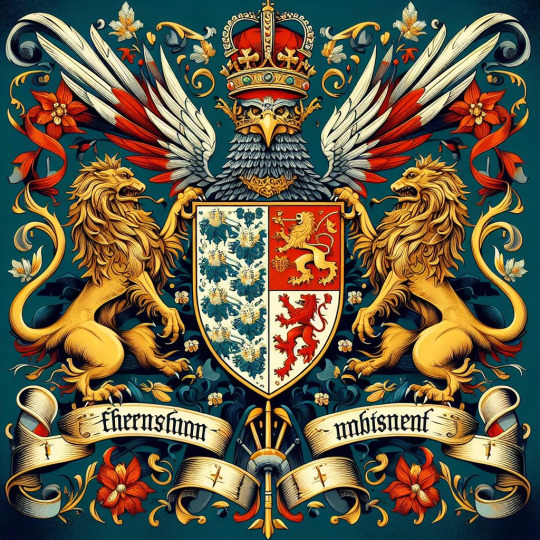
#ai#alternate#crusader#crusaders#feudalism#flags#holy roman empire#hre#kings#koa#medieval#tudors#edward vi#monarchies#what if scenario#koa lore#allt flags#vexillology#Edward Sixth#Edward Tudor#King Edward VI
2 notes
·
View notes
Text
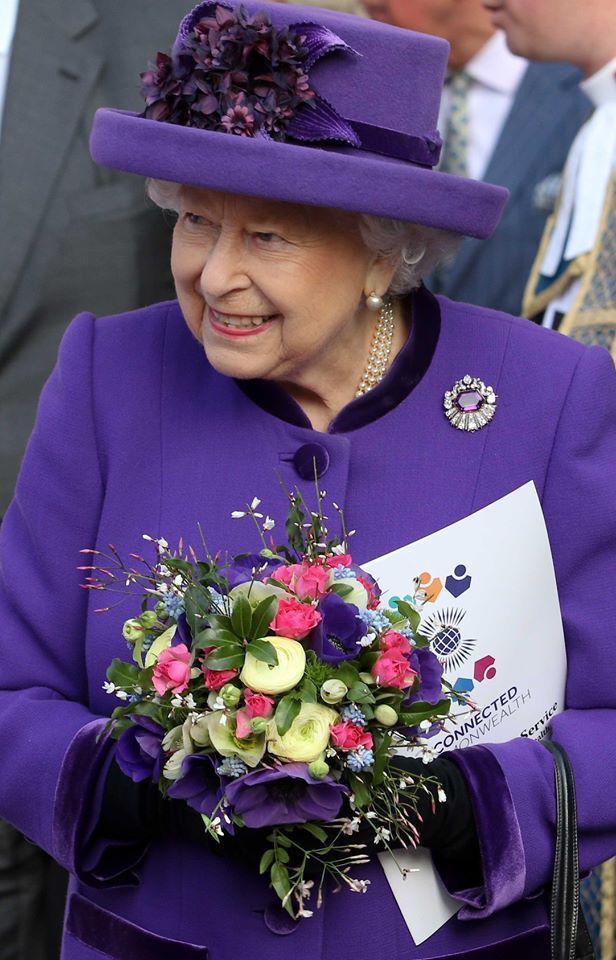
winterhill-aria - QUEEN ELIZABETH II - April 1926 - Sept. 2022
#monarchy#uk#england#united kingdom#monarchies#queen elizabeth ii#famous#celebrities#queens#flower#flowers#photo#photos#photography#winterhill-aria
6 notes
·
View notes
Text
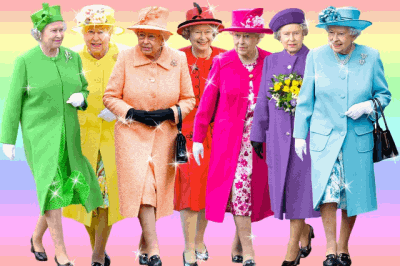
"Je dois être vue pour être crue." La reine Elizabeth II 👑
Gif source : monarchiebritannique.com
#gif animé#monarchiebritannique#jubilé de platine#reine elizabeth ii#quotes#monarchies#70 ans de règne#royaume uni#angleterre#couleur#platinum jubilee#fidjie fidjie
26 notes
·
View notes
Photo
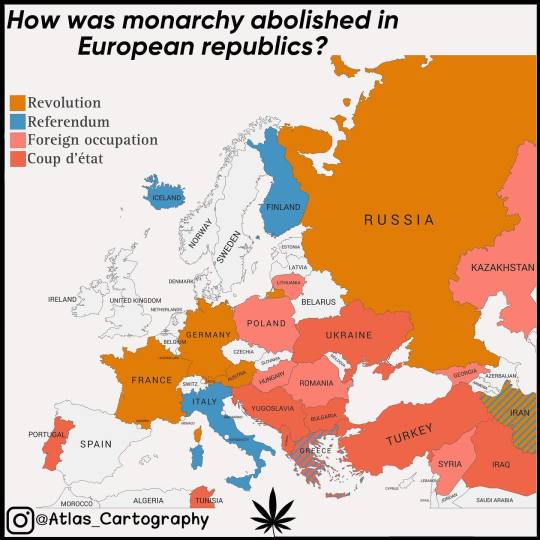
Abolition of Monarchy in Europe.
by atlas_cartography
363 notes
·
View notes
Text
The arguments for having a monarchy are often things which cant be proven nor disproven and the most popular ones are:
THE TOURISM ARGUMENT: Monarchies somehow leading to an increase in the number of tourists coming to a nation, and/or, influencing how much they spend in that nation. Which is something you cant prove since most places with a monarvhy havent been without one for at least a hundred years, well before the tourism boom of the 1950s.
THE STABILITY ARGUMENT: Monarchies bringing political stability to country. Easily disproven by opening a history book, but no one who argues it bothers to read one anyway.
THE CULTURE ARGUMENT: Monarchies being an important/vital part of culture. The one with a mild amount of validity due to pretty much any person that recieves attention impacting culture. Though it cant be proven that thry are that important to culture, as cultures are rarely stable things and are rarely things that completely collapse when one thing dissapears.
16 notes
·
View notes
Text
Can we imagine Darling and Dexter as Prince Jacques and Princess Gabriella of Monaco?
#ever after high#eah#dexter charming#darling charming#daring charming#house of grimaldi#monarchies#monaco#princess gabriella#prince jacques
6 notes
·
View notes
Text
I've never met a group so into monarchies as fanfic writers on ao3
1 note
·
View note
Text
ALFONSU III
King of Asturias
THE GREAT
(born c. 848/49 - died 910)

pictured above is an imagined portrait of the King of Asturias, by Eduardo Cano de la Peña from 1852
-------------------- ~ -------------------- ~ --------------------
SERIES - Descendants of the Kings of Asturias: Alfonsu was King of Asturias from 866.
-------------------- ~ -------------------- ~ --------------------
ALFONSU was born around 848-49, on an unknown location at the Kingdom of Asturias.
His parents were Infante Ordoñu of Asturias and his wife Nuña, and he was a member of a branch line of the ASTUR-LEONESE DYNASTY. His name was ALFONSU ORDÓÑEZ, meaning Alfonsu son of Ordoñu.
By 850 his grandfather Ramiru I, King of Asturias died and his father immediatly succeeded as King Ordoñu I. And probably on his father's accession he became an INFANTE OF ASTURIAS.
When his father died in 866 he succeded as ALFONSU III, KING OF ASTURIAS, but a certain Count Froila from Galicia tried to usurp his throne. He then fled to Álava and was only able to regain control over Asturias a few months later, after Count Froila was killed.
However unlike King Nepocianu, the other defeated usurper of the Asturian throne, Count Froila is not considered to have been King of Asturias.
He married a certain Ximena around 860-70, so it is not known if he was already King or not at the time of his wedding. They probably had eight children (check the list below), at least five sons and three daughters.
As some sources believe that his wife was a Navarrese Royal, one of the daughters of Gartzia I Enekoitz, King of Pamplona and his first wife Urraka, the marriage could have been arranged as an alliance between Asturias and the newly established Kingdom of Pamplona.
Early in his reign he conquered Oporto (currently in Portugal) and for two decades he fought the Emirate of Córdoba, over old and new Asturian terriories, until they finally made peace around 884.
In the early 900s his internal problems began as his family started to rebel. Some sources believe that in 909 his eldest son Infante García tried to took the power with the support of his mother and brothers around 909 but was defeated and imprisoned.
However theses sources also believe that his family forced him to abdicate in 910, before his death, and the Kingdom of Asturias was divided between his eldest sons. After which the capital of the Kingdom was changed from Oviedo to the city of León.
The King of Asturias died sometime in 910, in Zamora, when he was returning from a battle, probably against his sons. He was probably already in his sixties.
-------------------- ~ -------------------- ~ --------------------
Though, sources diverge on when his sons took the power and divided the Kingdom. Some believe he was forced to abdicate before his death and others believe that his sons only inherited the Kingdom after his death.
Each of his three eldest sons received:
Infante García - received León, Álava and Castille and became known as King of León;
Infante Ordoñu - received Galicia and became known as King of Galicia;
Infante Fruela - received the remainder of Asturias, around Oviedo, and became known as King of Asturias.
-------------------- ~ -------------------- ~ --------------------
Check my posts on ALFONSU III's family, his Royal House and his Kingdom!
ALFONSU III and his wife XIMENA may have had eight children...
García I, King of León - husband of Muniadona;
Ordoñu II, King of León - husband first (possibly) of an unknown woman, second of Elvira Méndez, third of Aragonta González and fourth of Antsa Santxitz of Pamplona;
Fruela II, King of Asturias - husband first to Nunilo Jimena and (possibly) second of an unknown Muslim woman;
Infante Ramiro of Asturias - possible husband of Urraca;
Infante Gonzalo of Asturias - probably unmarried;
possibly Sancha Alfónsez - nothing is known about her;
possibly an unnamed daughter - nothing is known about her; and
possibly another unnamed daughter - nothing is known about her.
He was a member of a branch line of the Astur-Leonese Dynasty.
And was the King of Asturias between 866-900.
#alfonsu iii#king of asturias#middle ages#medieval spain#medieval europe#astur leonese dynasty#royals#royalty#monarchy#monarchies#asturian royalty#spanish royals#royal history#asturian history#spanish history#iberian history#european history#world history#history#reconquista#9th century#10th century#history with laura
9 notes
·
View notes